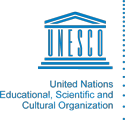New Rochelle, New York: Third Press Publishers, 2004. 330 p.
Organizations:
Lesotho. Government
Lesotho. Expanded Theme Group on HIV/AIDS
ISBN:
0-89388-237-2
Description:
The way we interpret and understand HIV/AIDS influences our choice for programmatic interventions. Therefore, this report begins by providing conceptual starting points for a comprehensive understanding of the HIV/AIDS epidemic. Chapter 1 sets the national historic context, which serves as a backdrop to the heritage which we seek to preserve, and the will of the people to win. Chapter 2 presents the substance of the presentation by the UN Resident Coordinator and Chairperson of the Expanded Theme Group on HIV/AIDS to the pivotal August 2003 meeting of the Prime Minister, the Cabinet and Principal Secretaries and members of the Expanded Theme Group on strategies for scaling up the national response to the HIV/AIDS pandemic in Lesotho and the discussions that followed. It provides a comprehensive overview of the main thrust of this critical exercise. Chapter 3 reflects on the various shifts in the global understanding of HIV/AIDS over time. It concludes by advocating a comprehensive approach that addresses four core domains of action: I. Prevention; II. Treatment and care; III. Mitigation of current and anticipated impacts; IV. Addressing systemic development factors, which collectively constitute a context of risk, vulnerability and reduced capability to cope with HIV/AIDS. Chapter 4 provides a situation and response analysis of HIV/AIDS in Lesotho. It builds on the conceptual framework of Chapter 3 by relating the analysis to the four domains of action (prevention, treatment and care, impact mitigation, and addressing systemic development factors). Chapter 5 discusses the mobilisation of all sectors of society in striving for an HIV/AIDS-competent society, as a core operational strategy for success. It draws on successful lessons from Uganda and Senegal, which could inspire Lesotho to follow suit. Chapter 6 presents the critical enabling capacities of Information and Communications Technologies (ICT) for Development, and how they can be deployed strategically in the fight against the HIV/AIDS pandemic. It addresses the creative use of ICT to provide meaningful and gainful employment for those infected with the disease and are homebound. Chapter 7, Culture, the Message and the Messenger, examines the role of culture in the communication of critical social messages. Introducing the novel concept of a “Cultural Immune System” (CIS), by which cultures and societies instinctively resist invasion by alien cultural norms, it advocates, in addressing the limited success of such interventions as condom promotion programmes, a process by which the HIV/AIDS message can be isolated from any embedded “alien” cultural biases, and how subsequently the message can be infused into the indigenous traditional methods of communicating critical social messages in order to achieve maximum acceptance and buy-in. The important potential role of the Initiation Schools in the Lesotho culture in this regard, is discussed. Chapter 8 examines the personal and institutional transformation that would be required as pre-requisites for a successful response to the HIV/AIDS pandemic. Chapter 9 examines the key role of government in the national response to the pandemic, indicating that it must lead the fight against HIV/AIDS thought, ensuring that all institutions of state, including the parliament, the cabinet, and the ministries, are involved at all levels. Chapter 10 provides clear examples where civil society can scale up its response to the pandemic through the mobilisation of all stakeholders to support the attainment of an HIV/AIDS-Competent Society. Chapter presents options for the private sector and stresses its important role in the scaled up response to the pandemic. The chapter also challenges the private sector to play a more dynamic role in the fight against HIV/AIDS. Chapter 12 reviews the role of international partners in supporting the move towards an HIV/AIDS-Competent society. Chapter 13 provides an analysis of the situation of orphans and vulnerable children, or “children rearing children”, which is perhaps the starkest evidence of the impact of the pandemic on society. It provides a number of options for addressing the plight of these children. Chapter 14 presents the key national mechanisms required to mobilise the whole of Basotho society towards an HIV/AIDS-Competent Society and clarifies the roles and responsibilities of the different structures and organisations. Chapter 15 examines ways to finance the scaled up response to the pandemic and makes a number of concrete recommendations for consideration by all stakeholders. Chapter 16, the Conclusion, puts the entire initiative and effort in perspective and within the context of the overall development challenge to Lesotho and Africa as a whole. It concludes that in order to meet the challenge of the HIV/AIDS pandemic head-on, and to win no matter the obstacles, the government and people of Lesotho, as indeed Africa and all of us, must find the courage to take ownership of the challenge, and commit and combine the best of our genius and resources, to fight to win. An HIV/AIDS-Competent Society is not a pipe dream; it is within our reach. It is hoped that the conceptual and pragmatic road map presented in this manual will help bring about an HIV/AIDS-Competent Society.
Themes:
Resource types:
Keywords:
Languages:
Record created by:
IIEP


